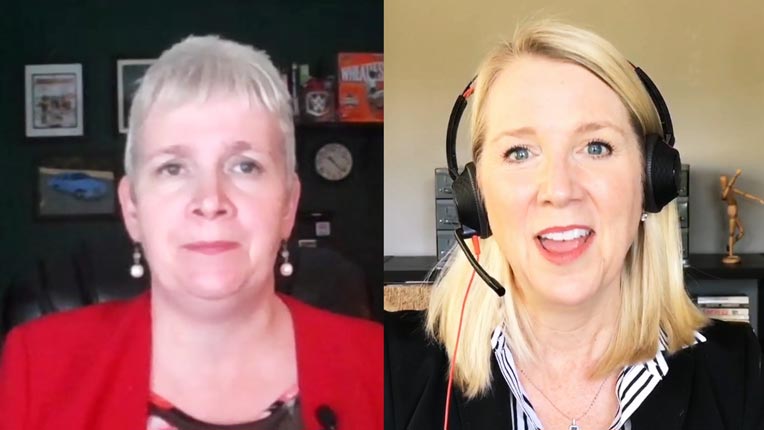Christine, thank you for joining us today.
Christine Benz: Susan, it’s my pleasure.
Dziubinski: Now the first mistake that investors might be making in today’s market is assuming that the worst is over.
Benz: I think that’s a big risk for investors right now. We have had such a tremendous recovery in stocks since they bottomed in March, but I think it might be tempting to assume that it will be sort of off to the races from here. And I think the big risk in that is that there’s just still so much uncertainty out there, in terms of the economy, in terms of what shape the recovery will take. And so I think investors would want to be careful at this juncture about really backing up the truck for equities, which is not to say you shouldn’t have equities. You absolutely should. You need the growth potential that comes along with them. But if you are someone who is getting close to retirement, if you’re say, within 10 years of your expected retirement date, I think it does mean that you want to take care to make sure that you have enough dedicated to safe assets like cash, like bonds.
Dziubinski: Now, another mistake that investors could make is sort of the opposite of that, is becoming too defensive.
Benz: That’s right. And I think that that might be tempting right now, as I said, there is so much uncertainty currently, and investors sometimes are attempted by these tactical asset-allocation shifts, especially when you go through the sort of wrenching downturn that we experienced in March. But one thing I often point to is the fact that we’ve got this universe of tactical asset-allocation mutual funds. As a group, they haven’t made a particularly good case for themselves. That to me suggests that we individual investors might not be able to do a lot better. And then the other thing that I would point to is when you look at safe investments, which you do absolutely need if you’re close to retirement or retired, when you look at the yields on safe investments today, they’re really, really low. And that suggests that the return that you’re apt to earn from them is very low as well. You certainly wouldn’t want to hunker down in an all-defensive portfolio because you might not even beat inflation over time with such a portfolio.
Dziubinski: Another mistake that investors might be likely to make in an uncertain market is to want to add complexity or overcomplicate their portfolios. How would you define that? And what do you think of that?
Benz: Well, one product type that is often heavily marketed during periods like this would be alternative investment funds, and there are increasingly liquid versions of these. And these are like hedge type products, hedge fund type products. When we look at the performance of these funds–and it’s a big tent, there are lots of different variations–but what you see is that by and large, these funds haven’t distinguished themselves particularly well, even in periods when you might expect them to. And granted, we may see more opportunities for them to distinguish themselves in the months ahead, but overall, this is a high-cost group of products. It’s hard for me to see how you would gain a lot relative to an appropriately diversified, very vanilla stock and bond portfolio. There’s certainly a diversity of opinion about these products within Morningstar. There are some of our analysts who like them quite a bit. I’m less of a believer. I think most investors can obtain adequate diversification with very vanilla building blocks.
Dziubinski: Another mistake that investors can make, and that you’ve been talking about quite a bit in your work during this marked upheaval, has been the idea of not making radical bets or radical shifts in your portfolio during periods of market duress. Can you talk a little bit about what you view as a radical bet or radical shift?
Benz: Right, we’ve talked about some of the broad asset-allocation shifts that investors might be tempted to engage in. I would put those in that category, but also intra-asset class bets. Right now, if you read the financial press, you see a lot of chatter about value stocks, when value stocks might be ready to recover. I think it might be really tempting to take your whole portfolio and sink it into value stocks. Alternatively, you hear the opposite narrative that some of these large-cap tech names that have been pacing the market, that those are the place to be for the foreseeable future. I think you just really want to resist that sort of all-or-nothing mentality, especially when things are as uncertain as they are currently. Diversification is so much your friend, so you want exposure to both security types. Certainly if you have a broad-based index fund, for example, you’re getting small-value stocks, you’re also getting some of the large-growth stocks. I think that’s a better way to play it rather than betting too narrowly.
Dziubinski: And our last mistake that we wanted to talk about today was a sin of omission, or a missed opportunity. What is it?
Benz: Yeah, this is just an opportunity to really think about your financial plan. And certainly there are some people who find themselves quite time-pressed through this quarantine that we’re all experiencing, but some of us do have a little bit extra at-home time, a little bit more time to kind of just think about the big picture. I think it’s a good opportunity to check in on the totality of your plan, your proximity to your goals, and really what your goals are. Not just, “I want to have $1.5 million for retirement,” or whatever that goal might be, but just to think about life goals and how they intersect with your financial plan. If you have some extra time to think about that, to maybe have some of those discussions with your spouse, I think this is a great time to do so.
Dziubinski: Christine, thank you so much for your time today as always, these are wonderful insights and some things that we investors–mistakes we should be trying to avoid during these times.
Benz: Thank you, Susan.
Dziubinski: For Morningstar.com, I’m Susan Dziubinski. Thank you for tuning in.




















